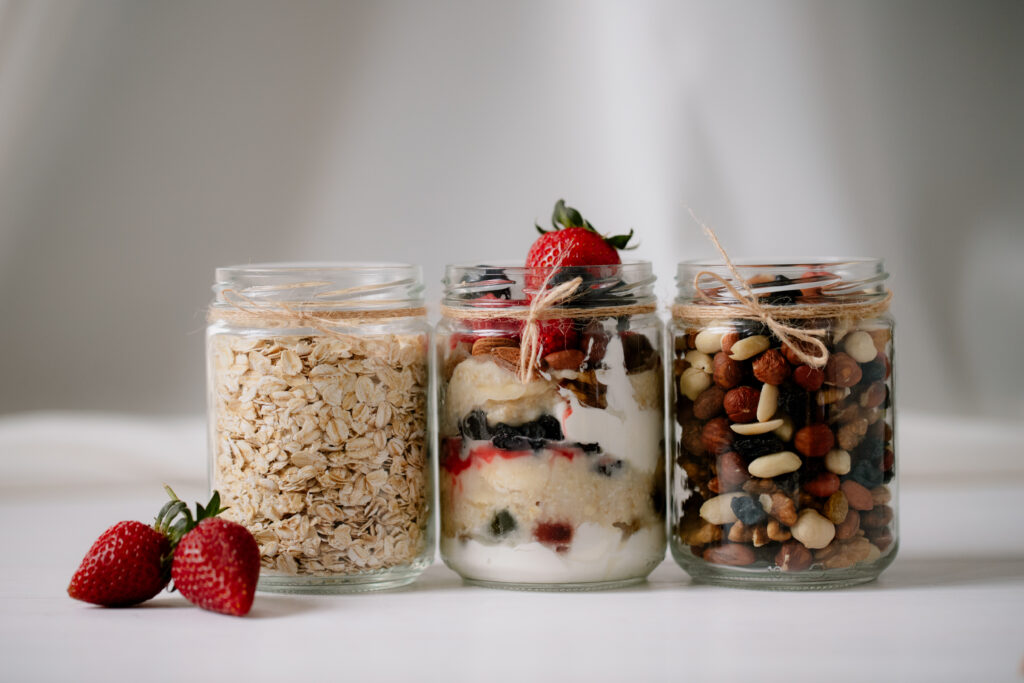
Introduction:
Fiber-rich foods are essential for a healthy diet, but they often come with an uncomfortable side effect: bloating and gas. For many, the benefits of fiber can be overshadowed by the discomfort it causes. But fear not—there are ways to enjoy these nutritional powerhouses without the unwanted digestive issues. This article delves into expert-backed strategies to help you manage and minimize bloating and gas, ensuring you can reap the full benefits of a fiber-rich diet.
1: Understanding the Fiber-Bloat Connection
Why Does Fiber Cause Bloating?
Fiber is essential for digestion, but it can also be a double-edged sword. While it aids in regulating bowel movements and lowering cholesterol, fiber also ferments in the gut, producing gas as a byproduct. This gas can lead to bloating, especially when fiber intake is suddenly increased. The two types of fiber—soluble and insoluble—play different roles in digestion, and understanding their effects on your body is crucial for managing discomfort.
The Types of Fiber
Soluble fiber dissolves in water to form a gel-like substance, which slows digestion and can lead to gas production. Foods like oats, beans, and fruits are rich in soluble fiber. Insoluble fiber, found in whole grains and vegetables, doesn’t dissolve but adds bulk to stool, helping it pass more quickly through the intestines. Each type affects digestion differently, and balancing your intake of both can help mitigate bloating.

2: Gradual Fiber Introduction to Avoid Bloating and Gas
Pacing Yourself for Comfort
One of the most common mistakes people make is increasing their fiber intake too quickly. Your digestive system needs time to adjust to higher levels of fiber, so introducing it gradually is key to avoiding bloating and gas. Start by adding small amounts of fiber-rich foods to your diet and increase the quantity over a few weeks. This allows your gut bacteria to adapt without overwhelming your system.
How to Incorporate More Fiber Slowly
Begin with easily digestible fiber sources, such as cooked vegetables and peeled fruits, before moving on to whole grains and raw vegetables. Monitor your body’s response and adjust your intake accordingly. Remember, slow and steady wins the race when it comes to fiber.

3: The Importance of Hydration
Water: Your Digestive System’s Best Friend
Hydration plays a crucial role in how your body handles fiber. Without enough water, fiber can cause constipation and bloating instead of aiding digestion. Water helps fiber move smoothly through your digestive tract, preventing the buildup of gas and reducing bloating.
Tips for Staying Hydrated
Make it a habit to drink a glass of water with every meal, and consider spacing your fiber intake throughout the day to ensure you’re drinking enough fluids. Herbal teas and water-rich foods like cucumbers and watermelon can also contribute to your daily hydration needs, further supporting your digestion.
4: Mindful Eating Practices to Avoid Bloating and Gas
Chew Your Food Thoroughly
It may seem simple, but how you eat can greatly affect your digestion. Chewing food thoroughly breaks it down into smaller pieces, making it easier for your digestive enzymes to do their job. This reduces the workload on your gut and decreases the likelihood of bloating and gas.
The Benefits of Slower Eating
Eating slowly also minimizes the amount of air you swallow, which can contribute to bloating. Taking your time to savor each bite not only enhances your meal experience but also supports better digestion and reduces the chances of feeling uncomfortably full after meals.
5: Cooking Techniques to Avoid Bloating and Gas
Cook Your Vegetables
Raw vegetables are packed with fiber, but they can be hard on your digestive system. Cooking vegetables helps break down some of the fiber, making them easier to digest and less likely to cause bloating and gas. Steaming, roasting, or sautéing your vegetables can help reduce their impact on your digestive system.
Experimenting with Preparation Methods
Different cooking methods can yield varying results, so don’t be afraid to experiment. For example, soaking beans before cooking can reduce their gas-producing properties. Similarly, fermenting foods like cabbage into sauerkraut can enhance digestibility while maintaining the nutritional benefits of fiber-rich foods.
Conclusion:
Enjoying the benefits of fiber doesn’t have to come with the discomfort of bloating and gas. By gradually increasing your fiber intake, staying hydrated, practicing mindful eating, and adjusting your cooking methods, you can find relief from these common digestive issues. A fiber-rich diet is crucial for your overall health, and with the right strategies, you can embrace it fully without the unwanted side effects. Start implementing these tips today and feel the difference in your digestive comfort.
Now that we’ve explored how bloating and gas can impact your comfort and well-being, it’s time to consider how dietary choices can make a difference. Incorporating the right foods into your meals can help alleviate these issues and support overall digestive health. One such beneficial choice is oatmeal—a versatile and soothing option for many. Ready to give your digestion a boost while enjoying a delicious meal? Dive into our easy and wholesome oatmeal recipes below to start feeling better today!
